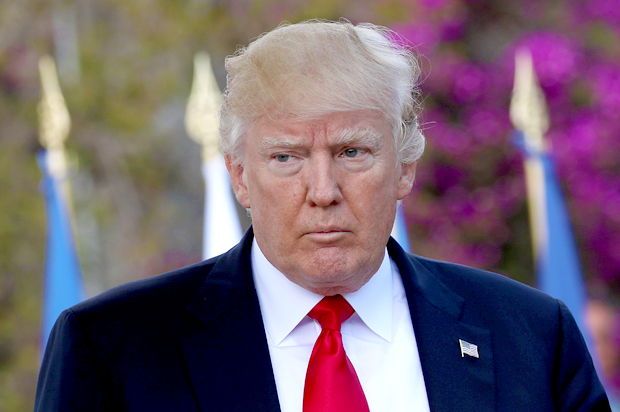“America First” has been a battle cry for President Donald Trump since the days when he was still seeking the White House. Now that he’s president, he’s about to make it the term which defines his new foreign policy agenda — one that will severely disrupt America’s standing on the world stage.
Trump believes that Russia and China are superpower competitors to the United States, according to Reuters. He will describe them as “determined to make economies less free and less fair, to grow their militaries, and to control information and data to repress their societies and expand their influence.”
In addition, Trump will promise to “go after malicious cyber actors” and will identify Iran, North Korea and militant Islamist groups as threats to America’s national security interests.
“As missiles grow in numbers, types, and effectiveness, to include those with greater ranges, they are the most likely means for states like North Korea to use a nuclear weapon against the United States. North Korea is also pursuing chemical and biological weapons which could also be delivered by missile,” the speech will claim.
The speech will also notably omit any references to climate change as a national security crisis. This is a sharp departure from the position taken by President Barack Obama, who depicted climate change as a national security threat.
Another major theme of the speech will be for America to start insisting that it will only participate in major international alliances, like NATO, if they are perceived by our government as fair and reciprocal. The speech will also focus more on beefing up homeland security defenses as a superior way of protecting America’s interests.
The association of “America First” with challenging America’s involvement in international alliances was criticized last week by U.N. Secretary-General António Guterres, who characterized it as the erroneous belief that “the interests of the American people are best protected by the US in itself, and that international organizations do not contribute much to it.”
Not everyone shares Guterres’ concern about the long-term implications of Trump’s upcoming foreign policy doctrine.
“I don’t think that there are going to be major impacts on existing U.S. alliances,” Jamie Fly, who worked in a number of foreign policy positions under President George W. Bush and served as foreign policy adviser to Sen. Marco Rubio, R-Fla., during the 2016 presidential campaign, told Salon. “I think the broader reaction is going to be focused on more that just some of the rhetoric.”
He added, “I don’t think it will undermine the U.S.’ clear commitment to NATO.”
Fly acknowledged that Trump’s speech would make waves both in the immediate sense and in terms of the history of American foreign policy.
“The bottom line is Trump has threatened occasionally to only come to the common defense of our NATO allies if those allies that are threatened pay their fair share,” Fly told Salon. “That is not the Article 5 commitment.”
He also pointed out that the Trump administration has departed from its predecessors through their “de-emphasis from the promotion of democracy and human rights.” As Fly noted, since World War II, “most administrations from both parties for the past several decades have believed that the promotion of democracy and human rights is innately tied to America’s interests. So there is a departure there, which I view as a dangerous departure.”

